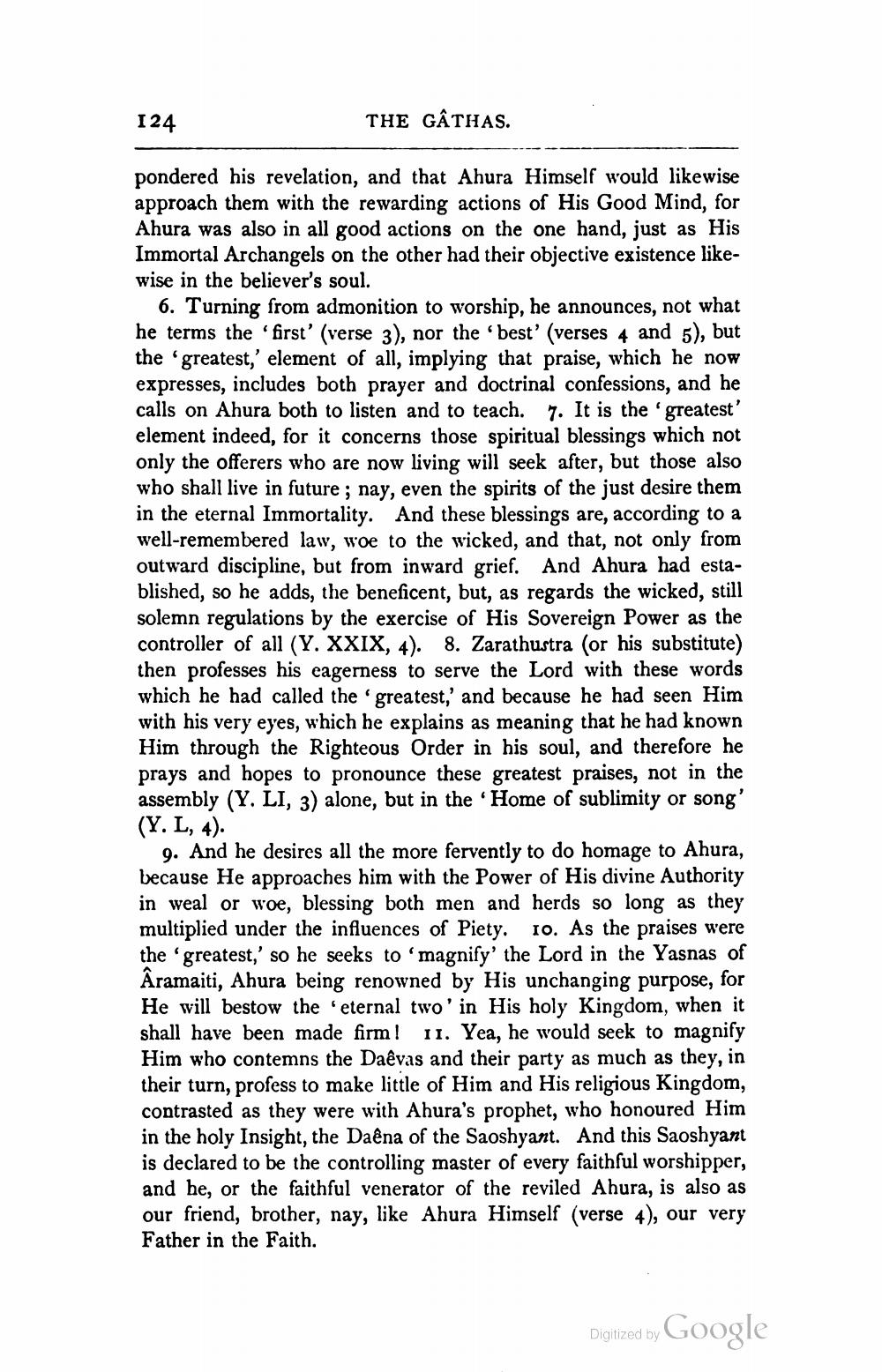________________
I 24
THE GÂTHAS.
pondered his revelation, and that Ahura Himself would likewise approach them with the rewarding actions of His Good Mind, for Ahura was also in all good actions on the one hand, just as His Immortal Archangels on the other had their objective existence likewise in the believer's soul.
6. Turning from admonition to worship, he announces, not what he terms the first' (verse 3), nor the 'best' (verses 4 and 5), but the 'greatest,' element of all, implying that praise, which he now expresses, includes both prayer and doctrinal confessions, and he calls on Ahura both to listen and to teach. 7. It is the greatest' element indeed, for it concerns those spiritual blessings which not only the offerers who are now living will seek after, but those also who shall live in future ; nay, even the spirits of the just desire them in the eternal Immortality. And these blessings are, according to a well-remembered law, woe to the wicked, and that, not only from outward discipline, but from inward grief. And Ahura had established, so he adds, the beneficent, but, as regards the wicked, still solemn regulations by the exercise of His Sovereign Power as the controller of all (Y. XXIX, 4). 8. Zarathustra (or his substitute) then professes his eagerness to serve the Lord with these words which he had called the greatest,' and because he had seen Him with his very eyes, which he explains as meaning that he had known Him through the Righteous Order in his soul, and therefore he prays and hopes to pronounce these greatest praises, not in the assembly (Y. LI, 3) alone, but in the Home of sublimity or song' (Y. L, 4).
9. And he desires all the more fervently to do homage to Ahura, because He approaches him with the Power of His divine Authority in weal or woe, blessing both men and herds so long as they multiplied under the influences of Piety. 10. As the praises were the 'greatest,' so he seeks to 'magnify' the Lord in the Yasnas of Aramaiti, Ahura being renowned by His unchanging purpose, for He will bestow the eternal two' in His holy Kingdom, when it shall have been made firm! 11. Yea, he would seek to magnify Him who contemns the Daevas and their party as much as they, in their turn, profess to make little of Him and His religious Kingdom, contrasted as they were with Ahura's prophet, who honoured Him in the holy Insight, the Daena of the Saoshyant. And this Saoshyant is declared to be the controlling master of every faithful worshipper, and he, or the faithful venerator of the reviled Ahura, is also as our friend, brother, nay, like Ahura Himself (verse 4), our very Father in the Faith.
Digitized by
Digitized by Google




